Major global media outlets and the international community, including the UN and the US, are set to keep their eyes on tomorrow's parliamentary election in Bangladesh.
However, compared to previous elections, the curiosity of the international media and community seems to have decreased even though the polls are said to be held in an inclusive manner this year.
The international media, while pointing at the crackdown on the opposition alliance, attacks during the polls campaigning and governance issues in the last 10 years, has also put focus on the political stability, economic growth, socio-economic development and the halt of political violence.
Reports quoting businessmen said the political stability must continue as it had greatly helped businesses to grow. There was indication in reports that Sheikh Hasina was widely expected to win tomorrow's national election.
However, amid concerns regarding weeks of widespread violence, mistrust and clashes between the ruling and opposition party men, the United Nations has called for a “peaceful, credible and inclusive” election.
UN Secretary-General Antonio Guterres, on Thursday, called for “an environment free of violence, intimidation and coercion” to allow peaceful, credible and inclusive polls.”
Meanwhile, the United States has wished all Bangladeshis a free, fair, tolerant and peaceful election.
Bangladesh is set to vote tomorrow and decide whether to grant a record third consecutive term to a prime minister who has overseen one of the fastest growing economies in the world, but whose government is accused of rampant human rights abuses, reports The Guardian.
It also reported that Hasina was hoping Bangladesh's 100 million voters would ignore the violence and focus on the country's extraordinary economic progress including the tripling of per-capita incomes since 2009 and an annual average growth rate above six percent in the past decade -- the fastest in the developing world.
“We have the fastest growth of ultra-rich in the world,” said Shahab Enam Khan, the research director at the Bangladesh Enterprise Institute. “But that doesn't mean the lower strata has benefited.”
The Guardian also said scores of opposition figures, including Hasina's major rival Khaleda Zia, have either been jailed or have disappeared during the months leading to the election, adding that international election monitors and press freedom groups have complained of unnecessary delays in issuing visas.
“Police harassment on opposition activists has reached unprecedented levels,” said Dr Kamal Hossain, a human rights lawyer who is also a leader of the joint opposition, the Guardian wrote.
The international media have also highlighted the Bangladesh Telecommunication Regulatory Commission (BTRC) ordering the shutdown of high-speed mobile internet services in a bid “to curb the spread of confusing content”.
Reuters reported that Facebook and Twitter said last week they had removed accounts and fake news pages linked to the government that had posted anti-opposition content.
It reported from Dhaka that campaigning for Bangladesh's general election ended on Friday after weeks of violence, mainly against leaders and activists of the opposition alliance, which has drawn criticism from the US and others.
The Awami League is promoting its economic record over the past decade but the BNP-led opposition alliance, many of whose leaders have been jailed, has vowed to remove curbs on the media, increase wages and freeze energy prices.
“The government has lost moral support,” BNP Secretary General Mirza Fakhrul Islam Alamgir told reporters on Thursday, urging voters to “restore democracy”.
“But the people are with us. They want change,” he said.
Aljazeera reported that Bangladesh would vote tomorrow in its 11th general election, which “would be held amid widespread violence”.
Despite earning global plaudits for sheltering nearly a million Rohingya refugees from Myanmar, the nine-year tenure of incumbent Prime Minister Sheikh Hasina was marked by allegations of creeping authoritarianism, the crushing of political rivals and a gag on media freedom, said an Aljazeera report on Thursday.
Associated Press (AP) reported from Dhaka that Hasina was poised to win a record fourth term in Sunday's elections, drumming up support by promising a development bonanza as her critics question if the South Asian nation's tremendous economic success has come at the expense of its already fragile democracy.
The Indian Express in a report, headlined “This time in Bangla poll heat, why India not hot-button issue”, yesterday wrote that “the India factor -- which had been a part of the pre-election rhetoric in the past -- was missing from campaign speeches”.
What has helped is that India has not issued any statement, except asking for a “free and fair election”, unlike many of its western counterparts – especially America and Europe.
According to a Bloomberg report yesterday, Hasina's ruling Awami League -- which has presided over the years of high economic growth and has handled the influx of 750,000 Rohingya refugees from neighboring Myanmar -- is widely expected to return to power. That outcome would ensure economic policy continuity and help sustain a steady flow of foreign investment, they said.
However, it said as the national vote scheduled for December 30 drew closer, security operations had intensified and prominent opposition leaders had been jailed. At least 8,243 opposition alliance activists and leaders had been arrested since the election schedule was announced in November, according to data compiled by the BNP.
UN News reported that Sheikh Hasina, of the ruling Awami League, is seeking a third consecutive term, while her main rival for the top job, former prime minister Khaleda Zia, also the chairperson of the BNP, remains in jail on corruption charges which she said were politically motivated.


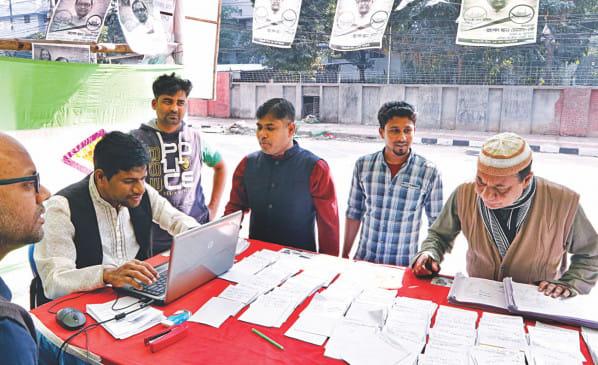
 For all latest news, follow The Daily Star's Google News channel.
For all latest news, follow The Daily Star's Google News channel. 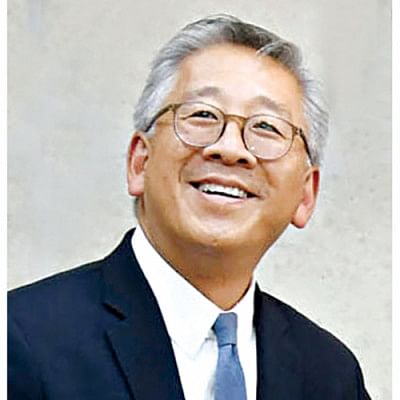
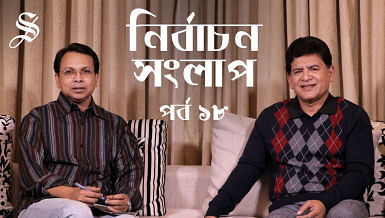
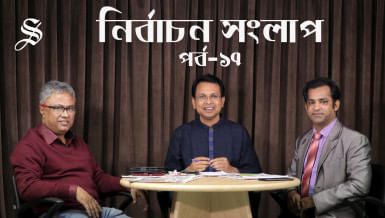
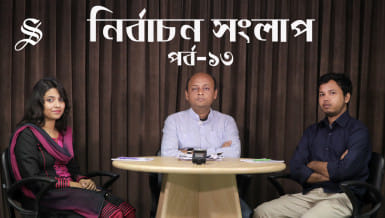
Leave your comments